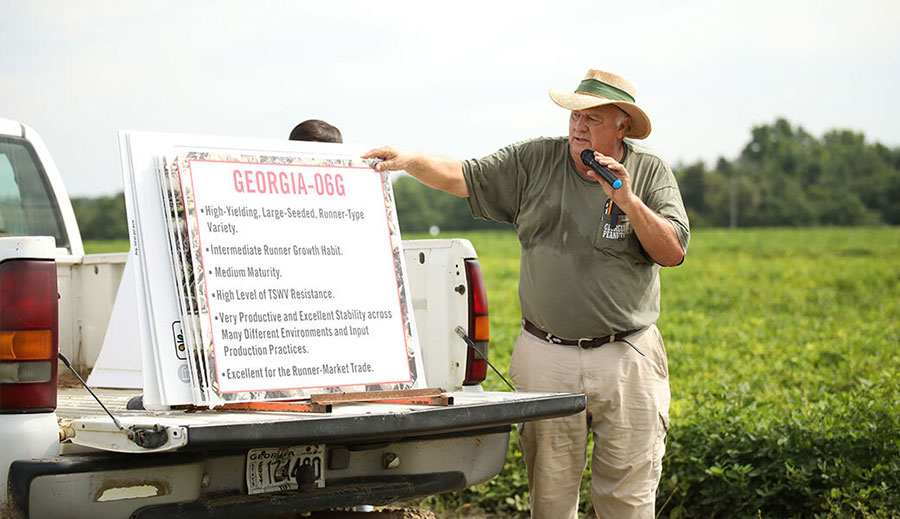 CAES News
CAES News
Research at Work: Peanuts

About 90 percent of Georgia-grown runner peanuts are made into peanut butter each year. The disease- and pest-resistant peanuts developed at the University of Georgia help farmers boost yields while maintaining quality. Over 70 percent of peanuts produced in the U.S. are UGA varieties. Our research helps the food industry turn Georgia crops into the nutritious and safe products you use every day, like peanut butter.
Ideal varieties boost production
Sustainability of the Georgia peanut crop depends largely on the consistency of a variety to produce across many different micro climates throughout Georgia. Currently 95 percent of the peanut acres grown in Georgia are in Georgia-06G due to its ability to maximize yield and grade in a majority of the growing regions. Unfortunately, growing one variety across a majority of the acres is not a sustainable practice as diseases can overcome some disease resistance traits of a select variety.
Statewide Peanut Variety trials conducted by UGA scientists provide growers with the disease resistance traits, growth and vigor characteristics, and yield and grade potential of all commercially available peanut runner varieties. Data from these trails provide growers with the needed information about the performance of a select variety in a select region as well as across the state. Results and recommendations are provided to UGA Extension agents in each county who educate growers on which varieties perform best. Using superior tested varieties resulted in an increase of nearly $78 million in income from peanuts.

